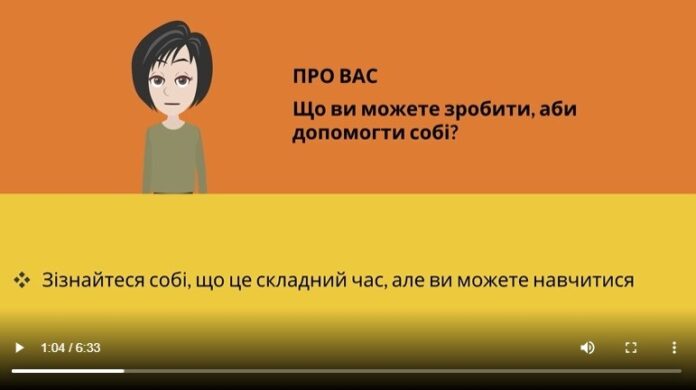Popular Ukrainian celebrity has joined forces with University of Manchester psychologists to encourage families affected by the war to access the widely shared psychological support leaflets they created.
Irena Karpa, lead singer and songwriter of the band Qarpa recorded a 6 minute audio version of a two-page leaflet highlighting parenting skills resources which have been used by desperate families affected by the invasion of Ukraine. She is also famed in the country as a writer and blogger.
The UN says at least 262 children have been killed and 415 injured in attacks since the Russian invasion on 24 February.
Around 5.2 million Ukrainian children are affected by the conflict: three million inside the country and more than 2.2 million in refugee-hosting countries.
Published in 7 of the languages of countries receiving Ukrainian refugees, the resource was developed from the experience of displaced Syrian parents living through the country’s civil war.
The leaflets – in Ukrainian, Russian, English, Polish, Romanian, Dutch and German are available on the on the University of Manchester website and along with other resources on a United Nations website.
They have now been made available, with support from the United Nations Office n Drugs and Crime Prevention Treatment and Rehabilitation Section (UNODC), in audio in Ukrainian, as well as English, Polish, and Romanian.
The leaflets have been used across Europe by NGOs, public health systems, charities, UK foster families and displaced families themselves and widely shared online. It is hoped that the audio recordings will help caregivers access the information more easily.
The work is based on the research of Dr Aala El-Khani, a University of Manchester psychologist and family skills programme trainer who developed numerous family skills interventions and parenting resources based on her experiences working with Syrian refugees in Syria, Turkey and the UK.
The academic, who is of Syrian heritage herself, worked with Professor Rachel Calam, Professor of Child and Family Psychology and Dr Kim Cartwright at The University of Manchester, to produce the leaflet.
It explains that anxiety, nightmares, bedwetting, withdrawal and even aggression are common responses to childhood trauma, and offers basic reminders and suggestions to parents for looking after themselves and their children.
Dr Aala El-Khani, who also works as an international consultant for UNODC said: “We know that one of the most important predictors for the mental health of children who experience conflict and displacement is the way that they are cared for by their families.
“Warm, positive parenting can help buffer children from psychological harm and that is the purpose of this initiative which is making a real difference to Ukrainian families affected by the war.
“One Polish group in Poland told us they had even been distributing the leaflets to exhausted parents at a train station, along with a warm drink.
“This provided families an opportunity to be open about the challenges they were facing, and help them to refocus on what they could do to be the best parent possible.
Seeing the leaflet, one relief worker in Romania told the team: “So really helpful, at first hand all the info guidance and advices, Will make sure to have printed out forms and given to parents in need that cross the border from Ukraine to Romania.”
Another said: “Thank you for this valuable resource. We will use it among our networks and share it with those who are helping to provide pastoral support for traumatised Ukrainian refugees.”
Professor Rachel, Calam said: “We know that good family relationships are an important way to promote children’s mental wellbeing, which can help to counteract their actual experience in wartime – appalling though that may be.
“Our recently published article in the journal Child and Adolescent Mental Health highlights this and what researchers have to say on this area.
“But overall, if families can provide warm, positive and secure parenting, that can be powerfully protective, and this information helps them to achieve just that







